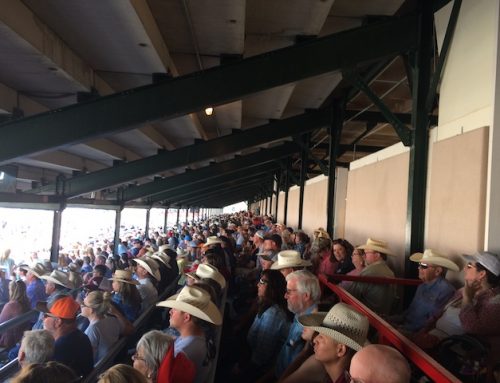I have now been an academic for just over 10 years. It is a job I love, and I have been lucky enough to experience some success. I work with some amazing people, get to sit in a classroom with amazing students, have great colleagues, and for some reason I am yet to fathom, am invited all over the world to collaborate, give presentations and run classes.
In saying all that, I am sometimes astounded by the sense of entitlement that some academics I meet carry. Even more worrying, is when I see younger colleagues mimic this.
So here is a blog that is unlikely to gain me friends – I may even lose some – but that I think needs to be written: 9 things to do to ensure you do not become an academic jerk.
The stories I tell are not from my university alone – a place I find to be generally collegial – but from experiences across the sector. I write this aimed at emerging and early career academics – encouraging you not to mimic those around us who lack collegiality, respect and basic civility.
1. Always say thanks (and be polite in emails)
When someone assists you always make a point of saying thanks. Universities are big, busy places and it is easy to feel the pressure of deadlines. But that is no excuse to be rude and not show appreciation. It is amazing how often I see people send around emails demanding things be done with no note of thanks when people assist them. It is un-collegial and rude – and does nothing to show the respect that we expect from others.
2. Stop complaining
Sure, we are busy: we have a lot of marking, need to publish and write grants – but this job is amazing. For most academics, we get to research what we love; teach what we love; meet amazing colleagues at conferences all over the world (which are mostly paid for by our institutions) and are on a salary about the national average. Yes, working conditions are changing – but we remain part of the privileged and should recognise this.
3. Recognise your privilege
Extending point 3 above, we should recognise this privilege. I have a dear friend who ran child care centres for children at risk. The people that work with her work long hours, in difficult and heartbreaking conditions, have to go to be at work everyday for the full 8 hours (no marking from home) and all for about a third of a professorial salary.
Next time you have a sabbatical or are off to Europe for an annual July conference in Barcelona, think of these amazing people who would be lucky to get to Europe once or twice in their lives.
4. Professional staff should always be respected
Once an academic described the work being done by a professional member of staff as ‘donkey work’! Yes, that is correct! Some academics seem to think that certain tasks are beneath them – and expect others who are obviously not as ‘sophisticated’ as they are (irony folks) to do everything for them.
I hate paperwork as much as the next professor – but I recognise that people do not exist to serve me.
The professional staff at a university are a significant part of the student journey – and they should be treated with the utmost respect while you recognise that they do not have access to the same privileges you do (see point 3).
5. Sessional staff and junior academics are not your cannon fodder
When I first started my first position as a Level A academic, I was ‘encouraged’ to coordinate some of the largest first year units and a group of academics promised they would do guest lectures for me. It was a daunting task, but given the support promised, I accepted.
Interestingly, as the semester progressed most of those colleagues became ‘too busy’ to assist – and I was left with little support (David M and Greg N, if you read this, you both never let me down and I have always attempted to reflect your example).
I see academics treating junior peers as if they are there to only do the jobs no one wants, offering no mentoring or support. That is not their role and you should ensure professional development and decent wages at the very least.
6. Realise the rest of the world thinks we are complete wankers
Seriously most of them see us as a bunch of privileged, spoilt brats swanning around the world attending talkfests. They have the right to think that until we show them otherwise: so what are we doing to change that?
7. Your research is not that important
The most important thing we do is educate. Yes, our research adds value – but as individual researchers, we simply stand on the shoulders of giants. As individuals, we are not that important – but in collaborative teams, we should aim to change the world.
8. Be humble
I have said this before and I will say it again: I was very, very lucky to get some breaks and be supported by amazing people. Success, as Malcolm Gladwell reminds us, is a combination of hard work, support networks and timing (which includes luck). Never think that you are owed success – it is something that is dependent on those around you as much as it is you. So always be humble and never take the opportunities you have for granted.
9. Don’t be obsessed by workload
No other industry in the world has this thing – no one gets it. Recognise that at times we work too much, and at other times things are quiet. Workload calculations are mostly bullshit and should only be used as a guide to ensure emerging academics are not overworked and get to develop professionally, not manipulated by senior academics to ensure they do the minimum.
I love being an academic. I have often written, we need to be the researchers, educators and citizens we want our students to be. Likewise, we need to be the colleagues we aspire our colleagues to be.
It is a great career. Take advantage of it – but make sure you appreciate it every step of the way.
james






Dam, I deleted the sentence from mt PhD progress report that said the problem couldn’t be resolved because academics are jerks!
Couldn’t agree more James! Here’s to collegiality, love and humility.
Underlying all that you say is a pedagogy of care … for students, colleagues, collaborators and everyone that crosses our paths everyday.
After a 32 year career as a Professional Staff member, I have seen the many faces of academic attitude towards others. My first day of work began by meeting the staff in my immediate area, from there I was shown my tiny office which literally was an old storage cupboard converted to a one person office. I loved it as it mean’t a start of better things to come, it had a window and a view of Hawkesbury Road at Westmead. Following along, I was greeted by two young academics around my age bracket. Both in the School of Accounting. Friendly and helpful which lead me to believe that’s what ALL academics were like. Bubble burst the next day when a pompous head of department waltzed up to me and threw a huge pile of papers on my wee desk, told me the marking machine is out in the hall, wanted them done before I leave for the day. No eye contact, no introduction…..totally floored me. There’s so much more, but the upshot of my tale is that Academics should, as you said James, remain humble. I know a lot of Academics these days, things have improved greatly which is fantastic, but for all those out there who scoff at comments like mine, and remain in their ivory towers, please remember that everyone else is having fun, growing and continually keeping the knowledge flowing from one generation to the next.
The gratitude and humility you express in what you see and do is to be commended. You are in rare air. Let’s hope more people find it in their hearts to join your space.
Loved reading this – As someone attempting a PhD around working a day job, trying to get the energy to do my research through the weekend, and attending conferences on my annual leave, I do really get sick of hearing academics, who are incredibly privileged to get paid to purse and teach what they love, whinging endlessly about their jobs. It ranks up with listening to the privileged 10% of candidates on a scholarship whinging after 3 years that it’s about to expire. Really refreshing read, which I’ve saved to turn to when I need it.
I am a massive fan of James, and everything said here works as long as you have not been physically and mentally destroyed by bullying employers, triple-quadruple workloads compared to other staff, and by the academic work. That’s lovely that you don’t consider research to be the main thing, James. I wish university managers shared your perspective. After a week of doing full-time teaching and the managers tell you that was only 40% of your job, remember gang, James says its okay!
Unfortunately for me, and many many many many others like me, I was destroyed by my academic job. Mental breakdown, PTSD. With respect, I am not imagining it and I don’t think my “privilege” gave me a life threatening illness.
It may be that no other industry has workload calculators (of course, this is false), but have you considered that most industries are sensible enough to not religious require them? Most industries accept that you are allowed to stop working at some point.
As to some of the other comments? All I can say is that if you understood what you were saying, you would not be saying the things you are saying.
But rejoice if you think I live in an ivory tower and that my privilege blinds me! Because I am physically and emotionally destroyed and I have no idea if I will work again! And now I am told I’m imagining it! Maybe I have a bad attitude, right?